Heartplunger
A childhood ban on toy guns didn’t erase the specter of death from a neighborhood.
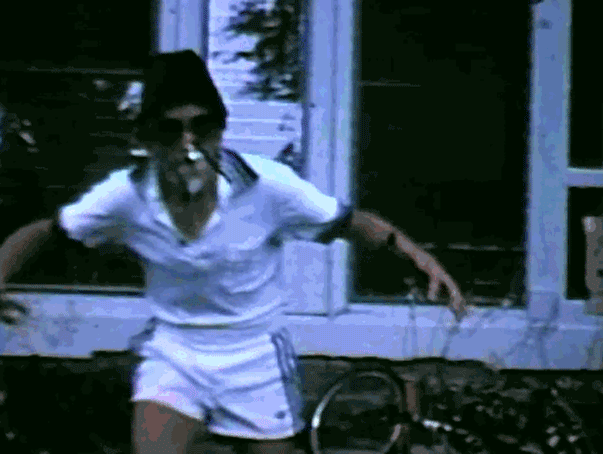
In the early 1970s my mother enforced a gun ban in our house and backyard. She did this on her own, without any input from the NRA or Congress. There would be no toy handguns, machine guns, ray guns, soap bubble guns, pellet guns, BB guns, or phasers. My mother, all Ms. Magazine advice and long, red hair with Louise Lasser braids, frisked the neighborhood boys at the backyard gate like a one-woman proto-TSA. To quote her large, clip-on earrings, she felt that “War is not good for children and other living things.” If some kids grew up in gun culture, from the time that I walked I grew up in gun-ban culture.
What becomes of a boy without a gun? With no gun, how can know he is a boy at all? My friend Stevie, who lived across the alley, had a toy arsenal that included grenades, machine guns, and a western-style cap gun that popped and oozed blue smoke when you shot it. Lacking his fire-power, I used a plastic banana-shaped recorder as a weapon. Stevie wondered what effect a bright yellow starter-flute could have upon a bad guy. I informed him I could jam it in his ear and blow so hard his brains leaked out the other ear, all while playing “Camptown Races.”
Thirty-five years later I’m standing in the elevator of a faculty building, heading up to my office. The face of the murdered girl is posted on the elevator wall. For one silent minute I am alone with her. She is smiling and has her arm around a big, brown dog. Next to her picture is an advertisement for a Zumba-thon in her honor.
Ding.
It took her less time to die than it took the elevator to arrive at my floor.
When I was 10, I used to pull weeds for an elderly widow who lived across the street. I wasn't very good at it. I still don't know what distinguishes weed from flower. This woman looked like a basement cellar potato—one with strange yellow-green growths and dark splotches. She wore an unconvincing wig on her potato head. She paid me for my yard work in loose change, “visits,” and lemonade. She never told me, but I knew she had cancer. I knew what cancer was and that it killed you slowly, unlike a knife or a chainsaw. If I were a widow with cancer, I thought, I would just let the weeds grow.
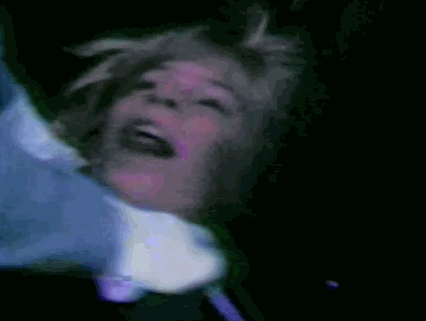
One day my dying neighbor paid me for pulling weeds with a peculiar gift that I still have sitting on my office desk: a Cine-Kodak Eight Model 25 8mm movie camera from the 1930s. It still works, though there is no longer any plain 8mm film for it to work with. It has her husband’s name etched into the side of it. In its heyday the camera captured vacations, childhoods, graduations. Exposed and forgotten. When I got my hands on it, I made serial killer movies in the backyard.
At that time, I loved the Henley girls in the uncomplicated way a little boy can love. I married the younger one, Emma, almost weekly in her backyard. I was a thin groom in an oversize suit and she was a chunky, bespectacled bride in a tutu. Kids threw flowers at us while Stevie played preacher. Perhaps the kids were laughing at us but for me it was a secret thrill to be, however fleetingly, betrothed to Emma. And her father’s bruised moon of a cancerous head would sometimes be at the window staring. He was dying too.
Once, one of the girls on the block taunted the Henley girls for having a dying father. “Ha, ha! Your dad is dying!” The Henley girls cried and ran home. Stevie and I tried to give this mean girl poison gum in return (we “poisoned” it with his chemistry set), but the mean girl didn't take the suspiciously re-wrapped gum and we never got our revenge. We could have killed her. We certainly wanted to.
The collective brain trust of the kids on my block had only one story to tell: A crazed murderer murders, is caught, escapes, and murders again. But my mother, having suppressed my Second Amendment rights, prevented us from realizing our vision with guns.
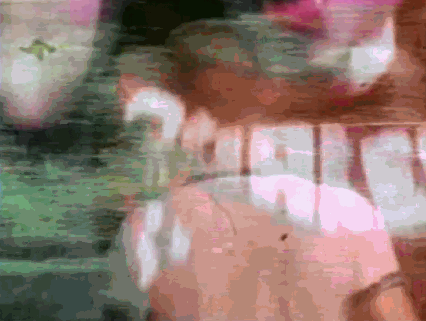
Obstructions, they say, are a spur to creativity. As the harsh structure of a sonnet forces the poet's creativity into order and creates a more beautiful, surprising product, so does a gun ban create more interesting murders. Armed only with imagination and a lack of understanding of basic anatomy, we created a psycho who would take a pair of pliers (courtesy of my father's workroom), stick them down his victim’s throat, and rip her heart out. His name: the Heartplunger.
It was difficult to think of reasons why a person would sit still for this procedure, let alone open her mouth long enough for a little boy in white short-shorts, oversize sunglasses, an oxygen mask (my mom was a nurse), and a cowboy hat to ram a pliers down her throat, all the way to her heart. But the Heartplunger always found new victims. After he had dispatched the Henley girls, we dressed up the neighborhood boys as ballerinas, gave them balloon boobs, and had them skip merrily across the yard only to be clobbered and have their hearts ripped out.
My mother’s gun ban could not change our backyard culture of violence, but she did limit the body count.
The murdered girl had no time to consider her stance on several weighty matters concerning American culture and what it means to have a well-regulated militia. No one gave her the fact sheet that describe the complicated history of American violence. We can’t know her thoughts as she died, but we do know that she shielded a little girl and that the little girl died anyway. But she died being shielded by a loving young woman, which is something.
One day the Henleys’ father was gone from his perch in the window. We continued our games after his death, which was deeply felt but unremarked upon. We played kid games like kick-the-can and jailbreak, but also turned our attention to less innocent pursuits. Like cabbalistic scholars, we sought a hidden reality through intense study and the creation of a sacred work we called the “Dirty Dictionary.” We were truth seekers and for us the truth was what our families shielded us from: death and swear words.
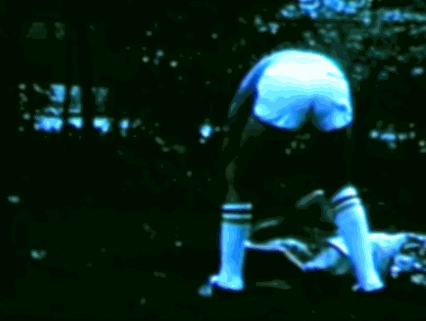
We convened regular meetings of the Dirty Dictionary Club and invited an older Brazilian girl, Claudia, to write down our findings. The “Your dad is dying” girl was banned from this pre-internet study group. We called the mean girl a stupid whore behind her back and giggled. Club meetings took place in the playhouse in the Henleys’ backyard. The main charter of this club was to meticulously catalog every bad word we knew. I added “sofabitch.” This was a misreading of sonofabitch, a phrase used often in my favorite book at the time, Salem's Lot. Claudia, though her English wasn’t perfect, was well read and had a breadth of inappropriate knowledge that included the obscure, confusing phrase “zipless fuck.”
Claudia took us to a secret hiding place beneath her porch stairs and taught us how to play doctor with sewing needles. The main point of doctor was to convince someone, boy or girl, to show us their butt and then to prick them with the needle.
I suppose we could have spent our time shooting each other instead.
Islands, like childhoods, are nice, discrete places to run experiments. What happens if we don’t give this boy guns to play with? Or what if, on this one small island, there are almost no guns? Will that have any effect on gun violence?
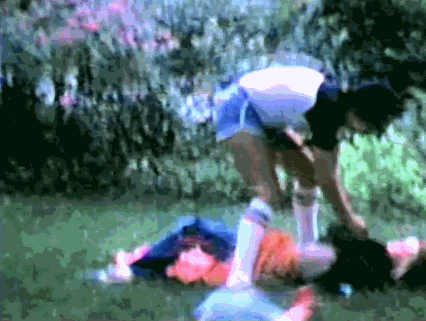
I lived both experiments. I was a boy with no gun and then a man who lived in a lush non-gun culture on the Pacific island of Pohnpei for 11 years. The island was, however, saturated with machetes. Machetes were readily available with no background check or age limit. When my daughter was young, I slept with a machete under the bed. Vague feelings of fear and intrusion burst in upon my feelings of love for my daughter and the machete seemed like the remedy for this nagging feeling that my daughter, a healthy and happy child, could suddenly die and I would be powerless to stop it. I was scared and the machete helped me sleep at night. Luckily, I never wielded the machete on anything but jungle and the occasional pig. Once while I was away from the house, an older cousin accidently cut my daughter’s cheek with the machete. She bled and required Band-Aids and stinging medicines for a few weeks. On the island, machete injuries are common, gun injuries nearly unknown. I now live in Connecticut and do not fear a machete attack or machete accident. There are essentially no machete injuries in Connecticut (such things are not even tracked). This is because there are very few machetes.
Are machete cultures less violent than other gun cultures? Probably not.
For instance, suicide is a serious problem on Pohnpei even though guns are not easily accessible. People find a way. Recently a girl, having been banned by her father from seeing her lover, tried unsuccessfully to hang herself and then tried unsuccessfully stab herself to death. She was brought, with minor cuts and bruises, to the hospital. A gun may have helped her to reach her goal more quickly.
When I was a teacher on Pohnpei it was maddening to come back from Christmas vacation having lost one or more students to suicide. There was a constant, infuriating suicide static hissing in the background on the island. Somehow, over the past few generations it has become “culture” on Pohnpei for teenagers to hang themselves. And it felt just as dire and hopeless and impossible to imagine this ever changing on Pohnpei as it feels impossible to imagine ever living in an America without the occasional, splashy, senseless school massacre.
At a faculty meeting this spring we unanimously decided to bestow a doctoral degree upon the murdered girl. We now have a “Posthumous Degree Policy.” The murdered girl, whose name was name was Rachel D’Avino, had finished her course work and was a teacher’s aide at Sandy Hook Elementary School, where she was murdered while shielding her six-year old charge on Dec. 14, 2012. She was in the second first-grade classroom the murderer entered.
All spring, I saw Rachel in the elevator every time I rode up to my office. She had her arm around her dog. It looks like she loved her big, goofy dog. I love my big, goofy dog.
Rachel had a younger sister, who wrote on our school’s memorial web page that she does not know how to live after having lived in Rachel’s shadow for so long. “What do you do when the person you modeled your entire existence after is taken from you?” she asked. I too have an older sister whose shadow protected me from the worst of adolescence.
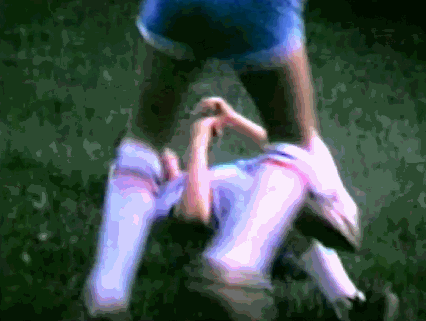
I have a daughter and an infant son. I understand now, as my mother did, that much of parenting is play-acting. Pretending the world is better, rosier, and shinier than it really is. And when it isn’t, I try to shield my children. I would shield them with my body if I had to.
Parents pretend the world is a happier, fairer place than it really is. And why not? Reality is overrated—we can improve upon it. I will show my children the world as I would wish it to be before they find out what it really is. I will carry on my family’s proud, American tradition of finding more interesting ways to pretend to kill each other than shooting a gun. Who knows what fascinating and destructive things my children will create?
Gun control begins at home, at the backyard gate. It requires no difficult action or debate. It requires no new laws or cultural shifts. Many Americans have a long history of not playing with guns. One simple truth is self-evident: Violent people do less damage with a pair of pliers or a plastic banana than with an AR-15 Bushmaster semi-automatic.
Give the child a gun and he will shoot. Take the gun away, and he will become a heartplunger.
